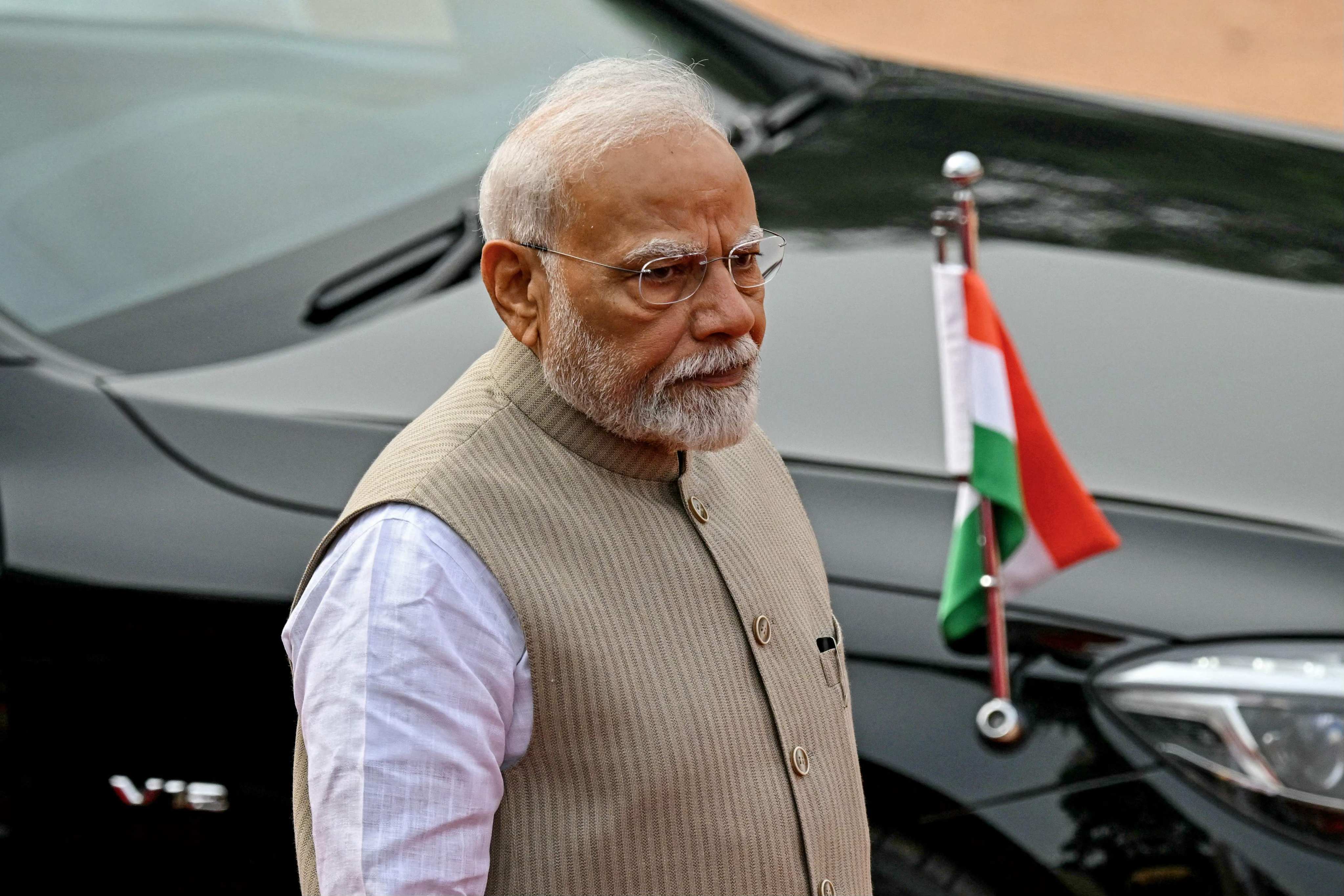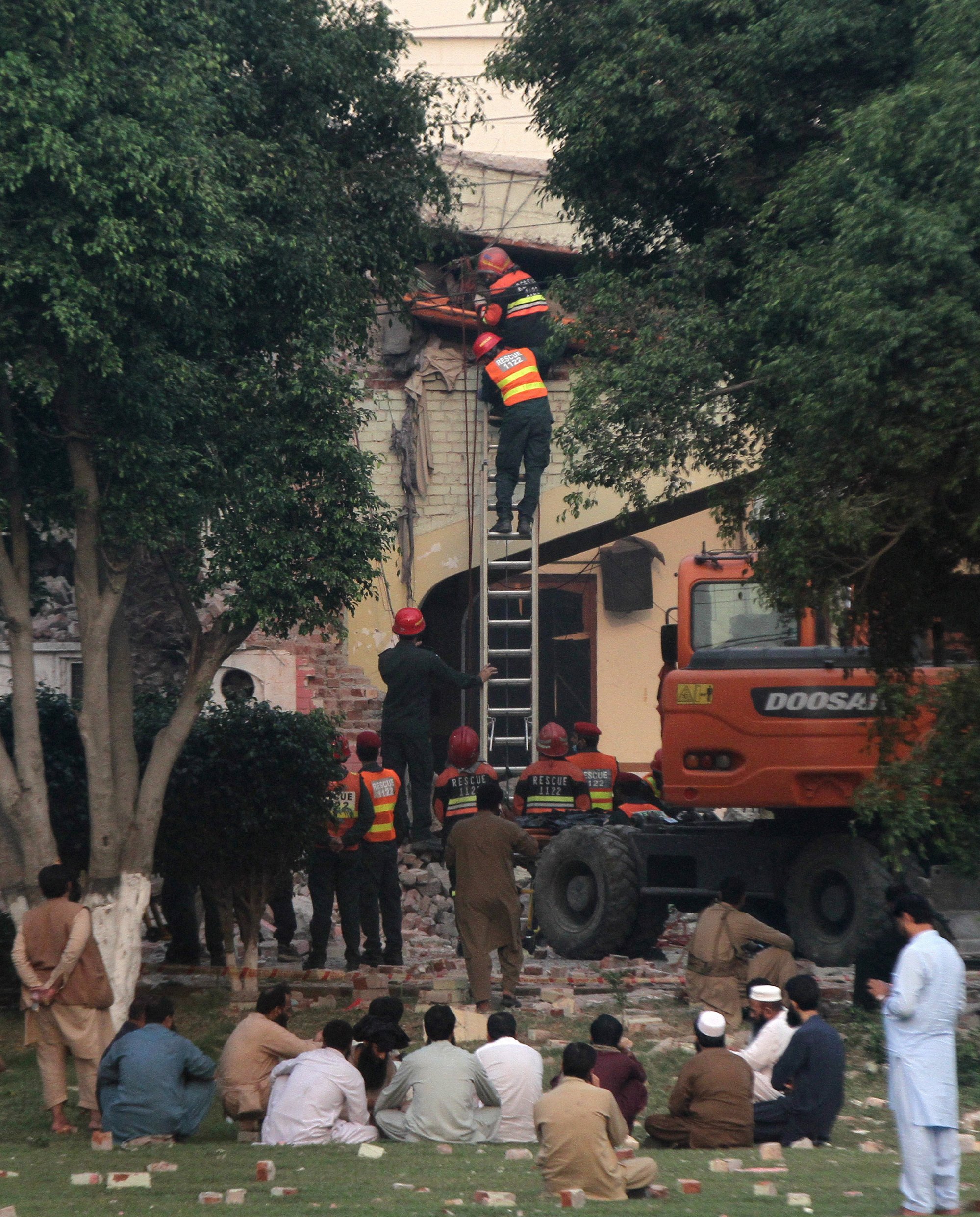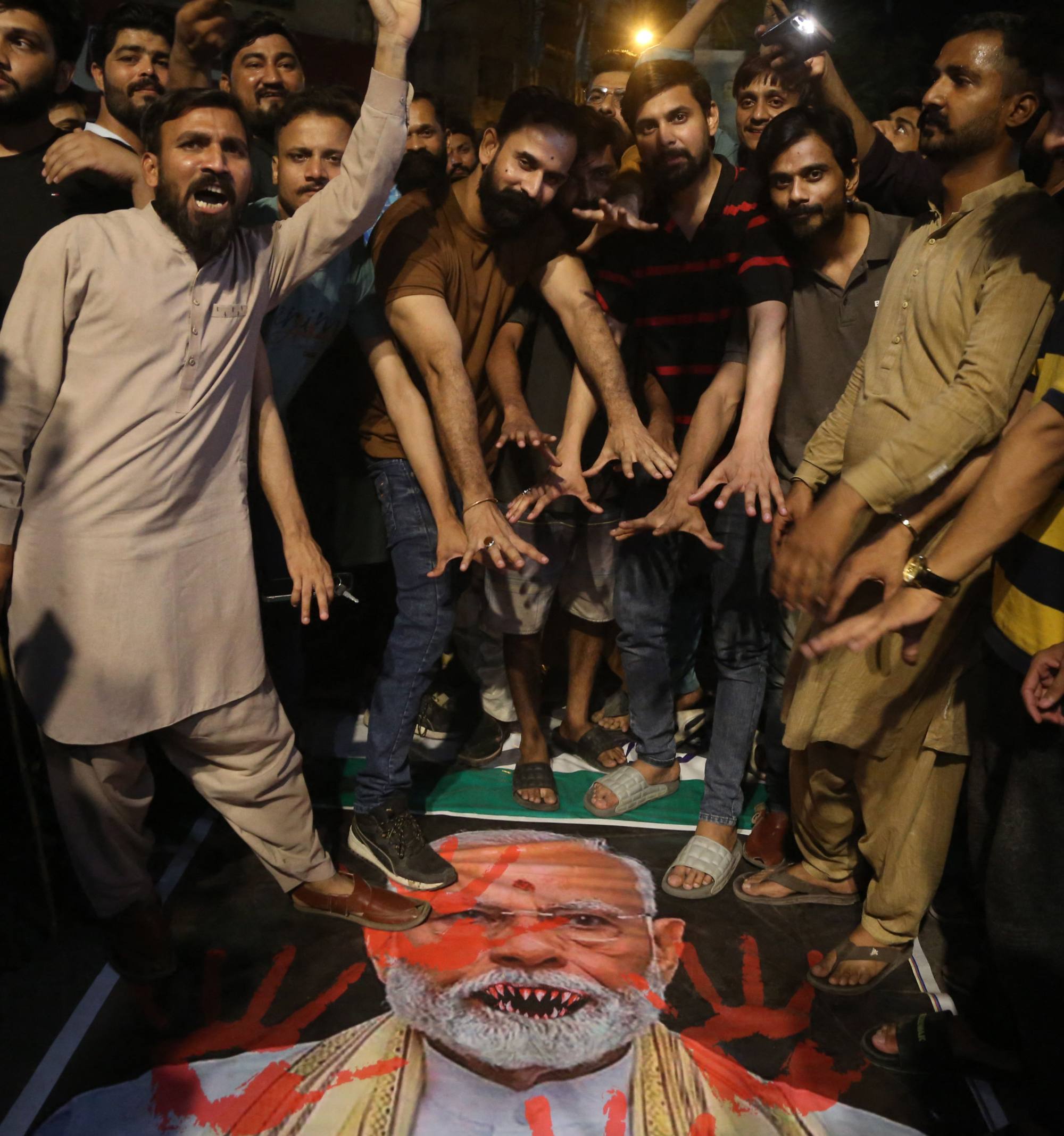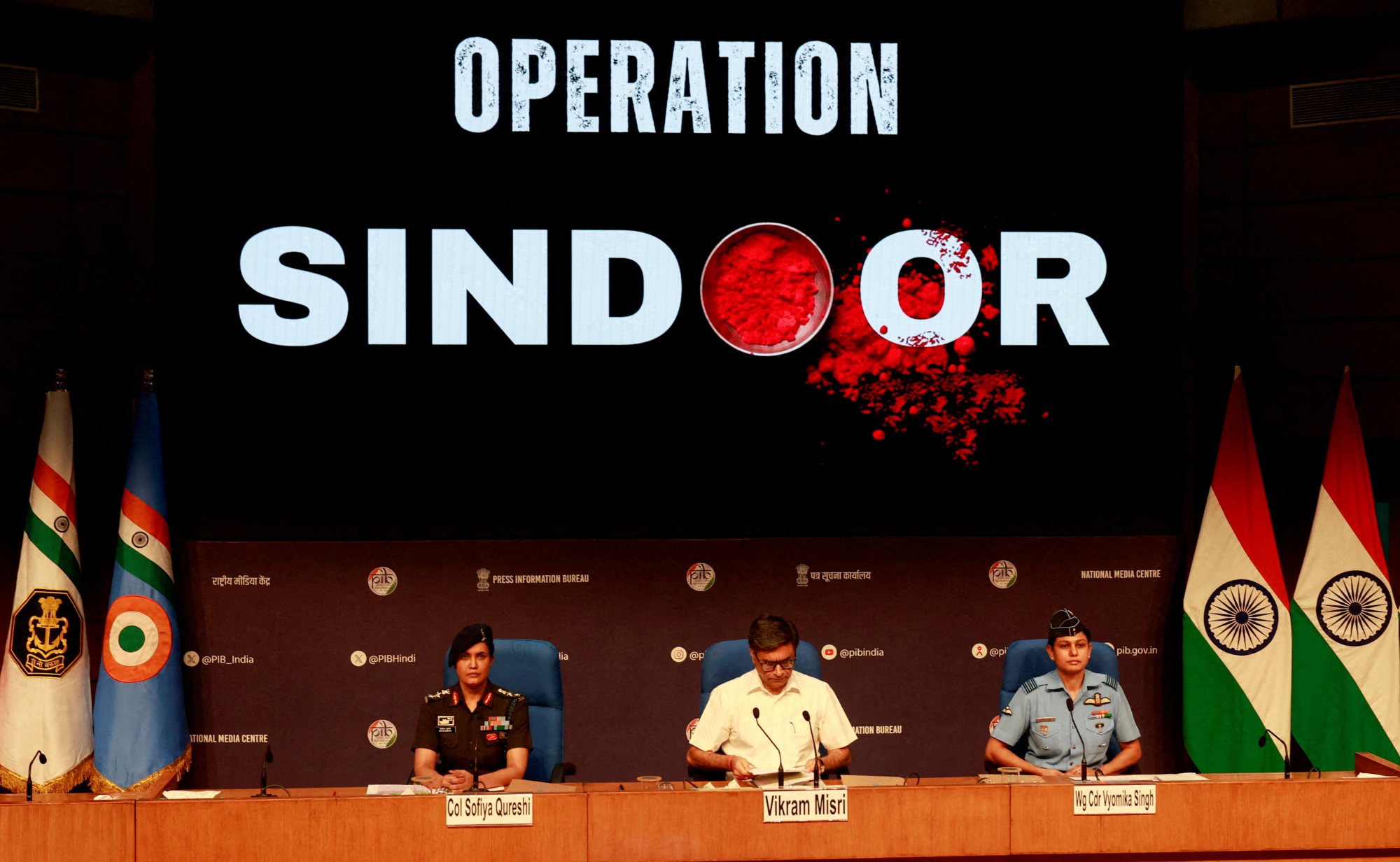India’s Modi under pressure as Pakistan strikes ignite nationalist fervour, global concern
China and the US have called for calm after the most serious military escalation in years between the two nuclear-armed rivals

India launched missile strikes on targets in Pakistan and Pakistan-administered Kashmir early Wednesday, marking the most serious military escalation in years between the nuclear-armed rivals and raising fears of a broader conflict – one that analysts say may serve New Delhi’s domestic political aims but risks triggering unpredictable retaliation from Islamabad.
The strikes – which Indian authorities dubbed “Operation Sindoor” – came in retaliation for an April 22 attack in Indian-administered Kashmir that left 26 Indian tourists dead. New Delhi has blamed Pakistan-based militants for the assault, a claim Islamabad has denied.
The Indian Defence Ministry said “precision strikes at terrorist camps” at nine locations in Pakistan and Pakistan-administered Kashmir were conducted, following which the nation’s military posted on social media: “Justice is served. Jai Hind [Victory for India].”
Pushpesh Pant, former dean of the School of International Studies at Jawaharlal Nehru University, said the strikes were “more optics than kinetics”, adding that Prime Minister Narendra Modi needed to show a strong response after the Kashmir killings triggered national outrage.
“In India, you have very interesting reports which say Modi has taken a leaf out of Israel’s war on Hamas in Gaza. It is not true as then the attacks would have been massive,” said Pant.

The attack posed a direct challenge to the narrative of the ruling Bharatiya Janata Party (BJP) regarding Kashmir. Modi’s government revoked the region’s semi-autonomous status in 2019 and has since touted improvements in security and development as a key national achievement.
It also coincided with a high-level visit by US Vice-President J.D. Vance, highlighting Kashmir’s lingering volatility at a time when India is courting global partners.
“The whole issue boils down to saving face,” Pant said, adding that the attacks would enable the Modi government to claim that Indian forces have struck deep within Pakistan close to the national capital Islamabad.
At least eight people were killed and 38 others injured in the strikes, Associated Press reported, citing a Pakistani military spokesperson.
Islamabad’s Ministry of Foreign Affairs said that the attacks were carried out in Muridke, Bahawalpur, Kotli and Muzaffarabad in the South Asian nation and Pakistan-run Kashmir.
Pakistan’s Prime Minister Shehbaz Sharif said that India launched a “cowardly attack” and that “this heinous act of aggression will not go unpunished”.
Defence Minister Khawaja Asif said five Indian fighter jets were shot down by Pakistan. However, there was no confirmation from India.
“The point is now everything depends on the calibrated response of Pakistan. If Pakistan kills many civilians in India in a retaliatory strike, then New Delhi will also be in a bind [to escalate the conflict],” Pant said.
Analysts in India said Pakistan’s appetite for a protracted conflict may be limited, pointing to the country’s fragile economy and the military’s diminished public support following the jailing of former prime minister Imran Khan on corruption charges.
“I expect Pakistan will retaliate in kind to India, but both sides will probably bank on some development that will take the heat of both sides to take extreme action,” Pant said, adding that it was hard to say what that could be at this point.
Neither side has battle-hardened troops who may be pitched into war, he said.
India has banned all Pakistani visas and suspended the Indus Waters Treaty, among other measures to escalate economic and diplomatic pressure on Pakistan and New Delhi is unlikely to be keen on further military action, analysts said.
Major powers including the US and China have urged India and Pakistan not to escalate the conflict.
“India and Pakistan are neighbours who cannot be moved away, and both are also China’s neighbours. China opposes all forms of terrorism,” a Chinese foreign ministry spokesman said on Wednesday.
“We call on both India and Pakistan to prioritise the overall situation of peace and stability, maintain calm and restraint, and avoid taking actions that would further complicate the situation.”

Earlier in the day, US President Donald Trump described the development following India’s missile attack as a “shame” and expressed the hope that “it ends very quickly”.
In 2019, India sent fighter jets deep into Pakistani territory to bomb what it claimed was a militant training facility in Balakot. The air strikes came in retaliation for a suicide bombing that targeted a convoy of Indian security personnel in Pulwama, also in Kashmir.
The swelling of nationalism that followed the attack helped Modi’s government win a second term.
Kashmir – a Muslim-majority region claimed in full but controlled in part by both India and Pakistan – has been the site of a bloody conflict since an anti-Indian insurgency erupted in 1989. Tens of thousands of people have died, though violence has tapered off in recent years.
Rocky road ahead
Nilanjan Mukhopadhyay, an independent political commentator, said that it was too early to say whether the Indian side would follow the same playbook that it did in Balakot in 2019 or push for an escalation with Pakistan.
“Now it is for Pakistan to retaliate and whether that retaliation is for India to escalate it further. We are on a very uncertain path security wise,” he said.

Mukhopadhyay noted that the operation was likely to benefit Modi politically, particularly among Hindu voters, given the symbolic name “Operation Sindoor” – a reference to the vermilion mark traditionally worn by married Hindu women.
“This will resonate with large parts of [India’s] Hindu population that revenge for widows of Indian tourists who were murdered in Kashmir has been taken,” he said.
Modi was still likely to face pressure from radical Hindu factions, Mukhopadhyay added, as they might view the strikes as falling short of his promise to punish the actual perpetrators – arguing that the missiles only destroyed militant infrastructure rather than targeting individuals.